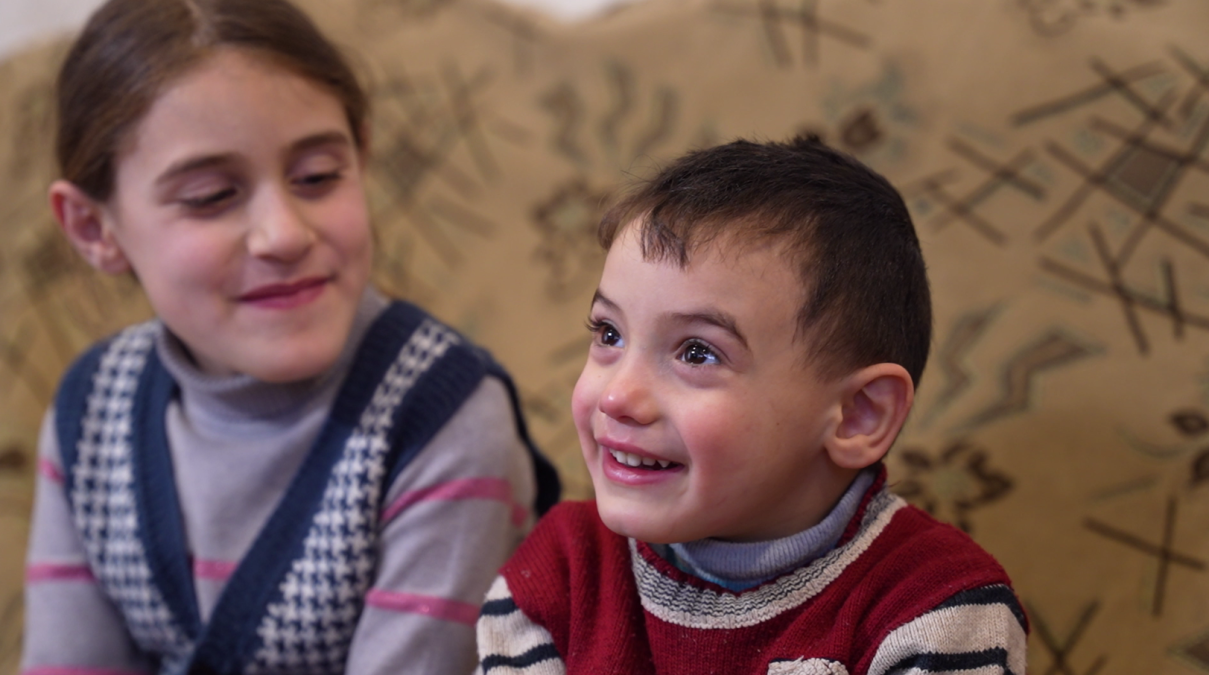Mission Armenia has been supporting thousands of displaced people
Published: May 29, 2023 Reading time: 3 minutes Share: Share an articleThroughout September 2021 up to the end of February 2023, Mission Armenia in partnership with People in Need (PIN), ACTED, and the Armenian Association of Social Workers (AASW), implemented the project called ‘REACT: Relief and Early Recovery for People Affected by Conflict in Armenia’, with funding from European Union Humanitarian Aid. This project sought to address the needs and increase the resilience of the conflict-affected people residing in certain regions of Armenia. About 1,600 conflict-affected people from Nagorno-Karabakh residing in the Armavir, Lori, and Shirak regions gained access to case management, psychosocial services, and legal support from the project.

We helped more than 500 people access case management services. In particular, to improve response mechanisms and social protection for the most vulnerable conflict-affected people from Nagorno-Karabakh residing in the Armavir, Lori, and Shirak regions, Mission Armenia provided case management services through needs-based referrals, information provision, counseling and interventions. The services provided helped address specific issues, such as food insecurity, unemployment, housing, clothing, education, and medical needs of the people and facilitated their inclusion in future opportunities.
In total, over 1,200 people benefited from psychosocial support provided through individual psychological consultations and group sessions to ensure an appropriate response to the cases with post-conflict and displacement-related severe trauma. Individual consultations included interventions to protect and promote specific people's mental health and psychosocial well-being. Group sessions helped the conflict-affected communities develop the knowledge and skills to recognize and manage emotions and cope with difficulties such as post-traumatic stress or loss and grief following displacement. Participants were also taught how to develop self-regulation and interpersonal communication skills. The training aimed to mitigate discrimination and marginalization and strengthen and rebuild constructive interpersonal relationships.
Over 1,000 people gained access to legal services, of whom 50 received relevant legal information and support for obtaining or restoring relevant documentation. Mission Armenia also provided legal counseling and assistance services on documentation, rights and relevant procedures to receive social benefits. Furthermore, the legal support was tailored to address legal issues while fostering beneficiaries' capacity to address them autonomously.
"All the interventions made in the framework of this project were aimed at promoting resilience among populations and were based on human rights principles, as well as on the principles of participation and ’Do-No-Harm’ principle. The success of the REACT project was ensured by close collaboration between the project consortium members and with all interested stakeholders: state bodies, local authorities, other NGOs”, says Alla Harutyunyan, Vice President of Mission Armenia.
Mission Armenia conducted evidence-based advocacy to address deeper, underlying barriers to the fulfilment of conflict-affected persons’ rights and to raise their access to state assistance programs. In particular, advocacy meetings were conducted with representatives from state bodies (particularly the Ministry of Labor and Social Affairs (MoLSA), Unified Social Service (USS)), provincial administrations, heads of communities and non-state agencies. The objective of these meetings was to discuss and develop mechanisms for providing services to conflict-affected persons from Nagorno-Karabakh and raising the latter’s access to state assistance programs. Participants developed an evidence-based analysis of existing gaps in the state support programs for displaced persons and relevant recommendations submitted to and discussed with the MoLSA. Information on state assistance programs was disseminated among conflict-affected persons and the public through relevant social media channels and radio programmes.
“To ensure that the humanitarian support and services have long-lasting effects, we must address the underlying barriers in the global policy. Hence, the advocacy toolkit allowed us to communicate the existing issues and evidence-based recommendations to decision-makers. We will follow up with the results, " states Alla.

